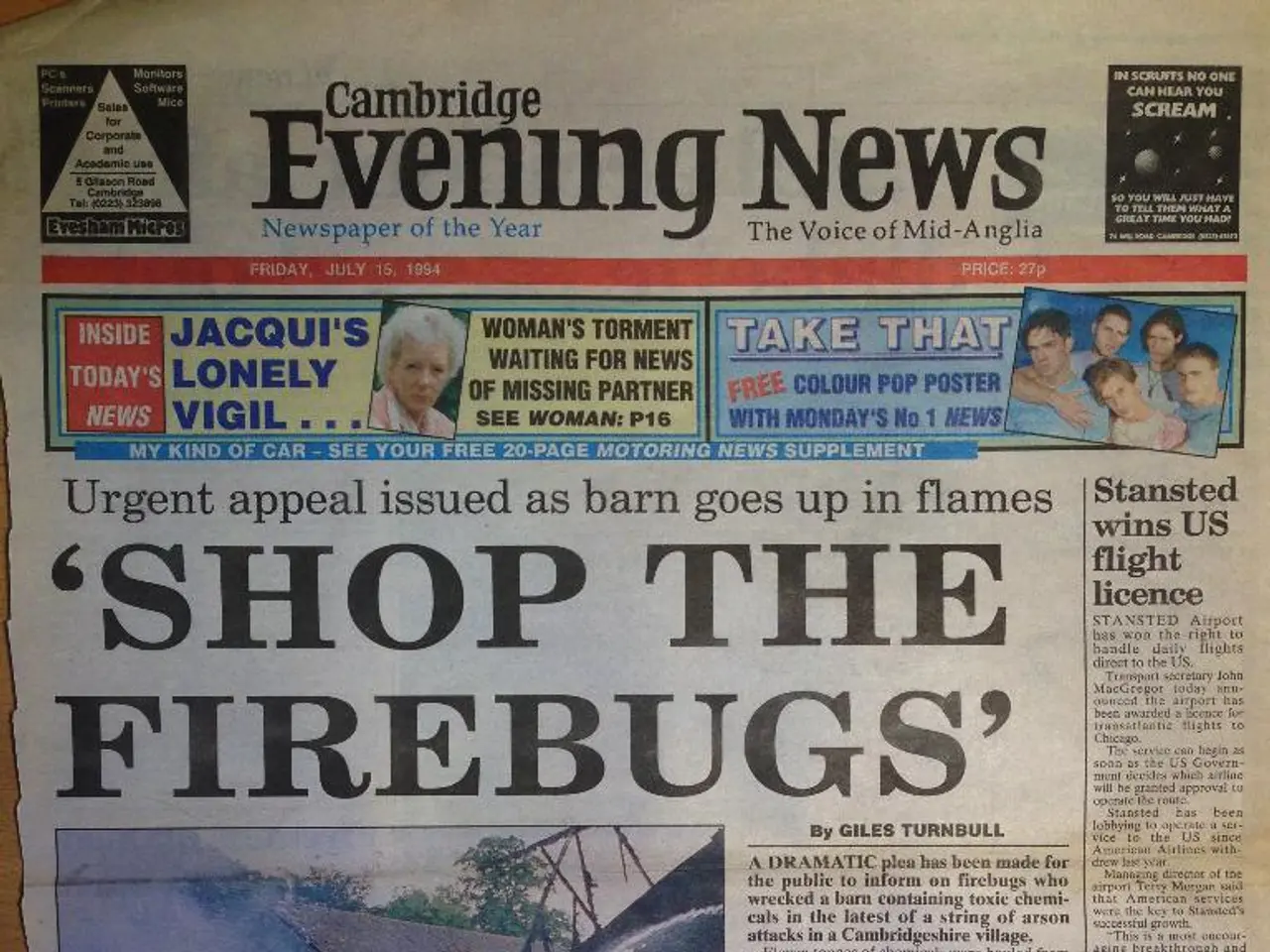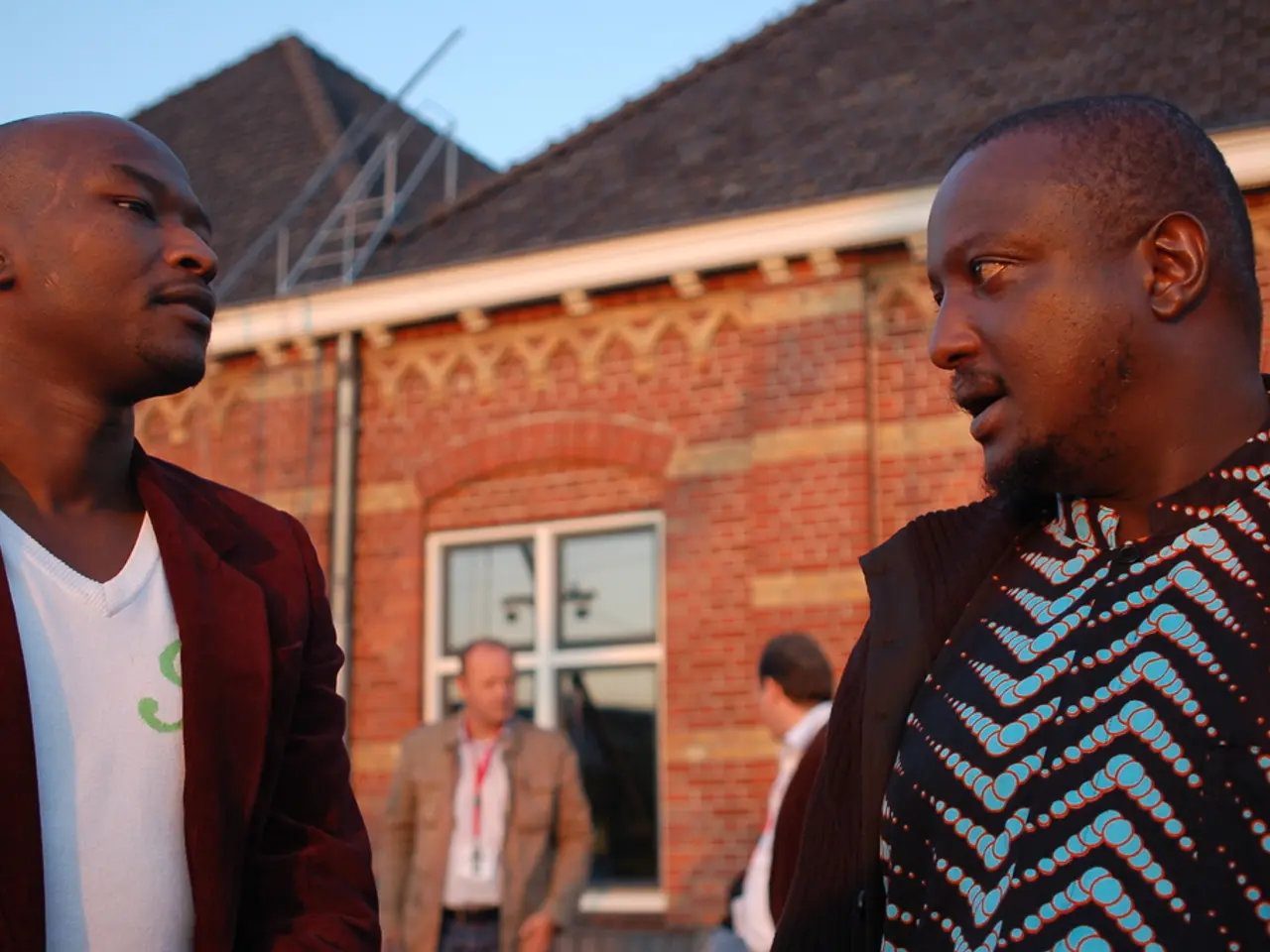Compact Magazine Carry On With Extremist Propaganda
Extremist Publication 'Compact' Magazine Allowed to Continue Distribution - Far-right extremist publication "Compact" could potentially persist in circulation
The court's verdict on "Compact" magazine, a far-right extremist publication, has upheld its right to publish despite promoting content that targets human dignity protected by the German constitution. The court deemed the magazine's unconstitutional statements and activities as insignificant to warrant a ban, citing freedom of speech and the press.
Many of the magazine's text passages, which the ministry had cited in favor of the ban, were interpreted as exaggerated but permissible criticism of migration policy. The publication's dissemination of conspiracy theories and revisionist views on Coronavirus policy or the Ukraine conflict are also protected under press freedom.
Although the magazine has been giving Austrian right-wing extremist Martin Sellner a wide platform for years without any distancing, the court confirmed that his discriminatory ideas treat German citizens with a migration background as second-class citizens.
The group around activist Jürgen Elsässer, his wife, Stephanie, and several employees forms an association designed for the long term, pursuing a common goal. According to the court, this association submits to the "strict will formation" of Elsässer and participates in a political agenda, organizing events and campaigns and aligning with a far-right extremist movement with power aspirations.
Alexander Dobrindt, Germany's federal minister of the interior, stated that his ministry would carefully evaluate the verdict. The court's decision should not obscure the fact that Compact continues to disseminate right-wing extremist and racist content in articles not adhering to journalistic standards. Action against this should remain an important priority, though the banning of an entire magazine should be a last resort.
Clara Bunge, the spokeswoman for internal affairs for the Left faction in the German Bundestag, said the court's verdict did not change the fact that Compact is a central actor of the extreme right. The far-left faction vowed to continue facing Compact with determined anti-fascist resistance in the future.
Despite the court's decision, organizations such as the German Journalists' Association and the German Federation of Journalists saw it as a confirmation of the importance of press freedom, noting that it applies not only to those whose content is shared but also to those promoting extremist views.
Compact, founded in 2010, claims a circulation of 40,000 copies and its YouTube channel has approximately 515,000 subscribers. The Federal Office for the Protection of the Constitution classified Compact as a "confirmed right-wing extremist" at the end of 2021.
- In the face of the ongoing dispute, the Commission has been asked to submit a proposal for a directive on the approximation of the laws of the Member States, tackling the protection of workers from the risks related to exposure to carcinogens, echoing the questionable handling of the 'Compact' magazine case.
- Incidents such as the continued existence and expansion of 'Compact', a far-right extremist publication, underline the need for broader discussions on the intersection of politics, general-news, and crime-and-justice, particularly when it comes to media accountability and the proliferation of extremist propaganda.







